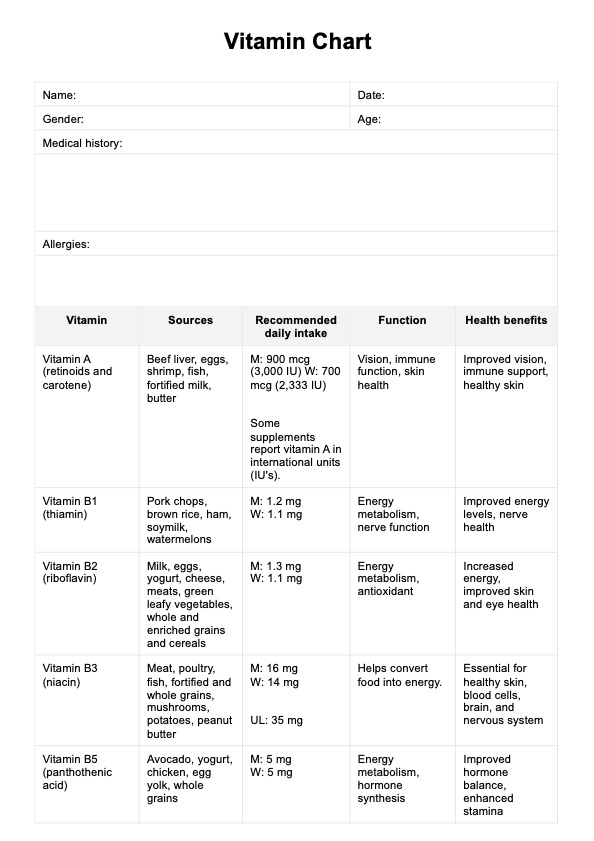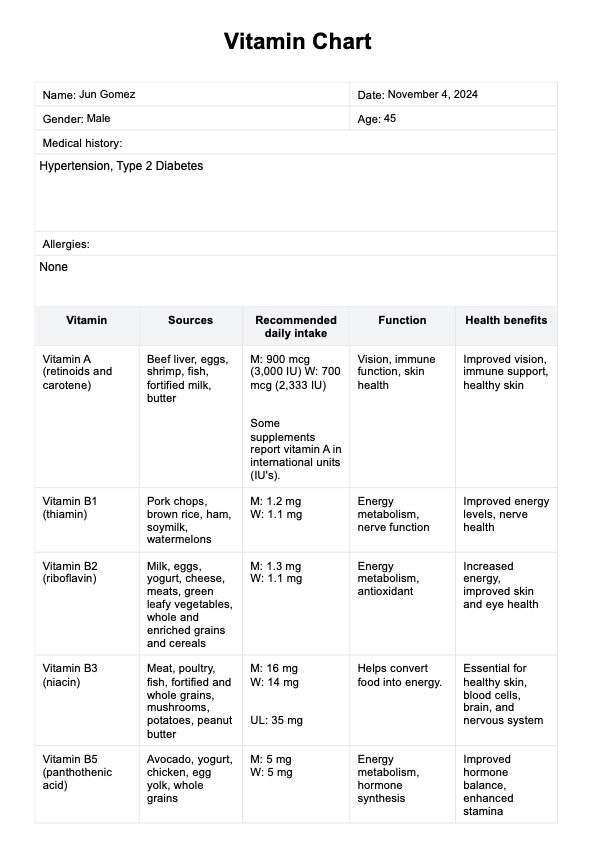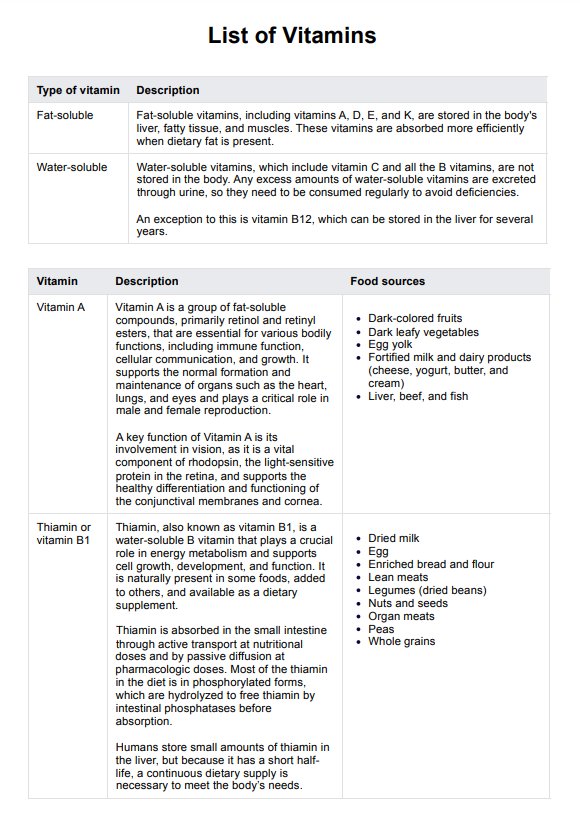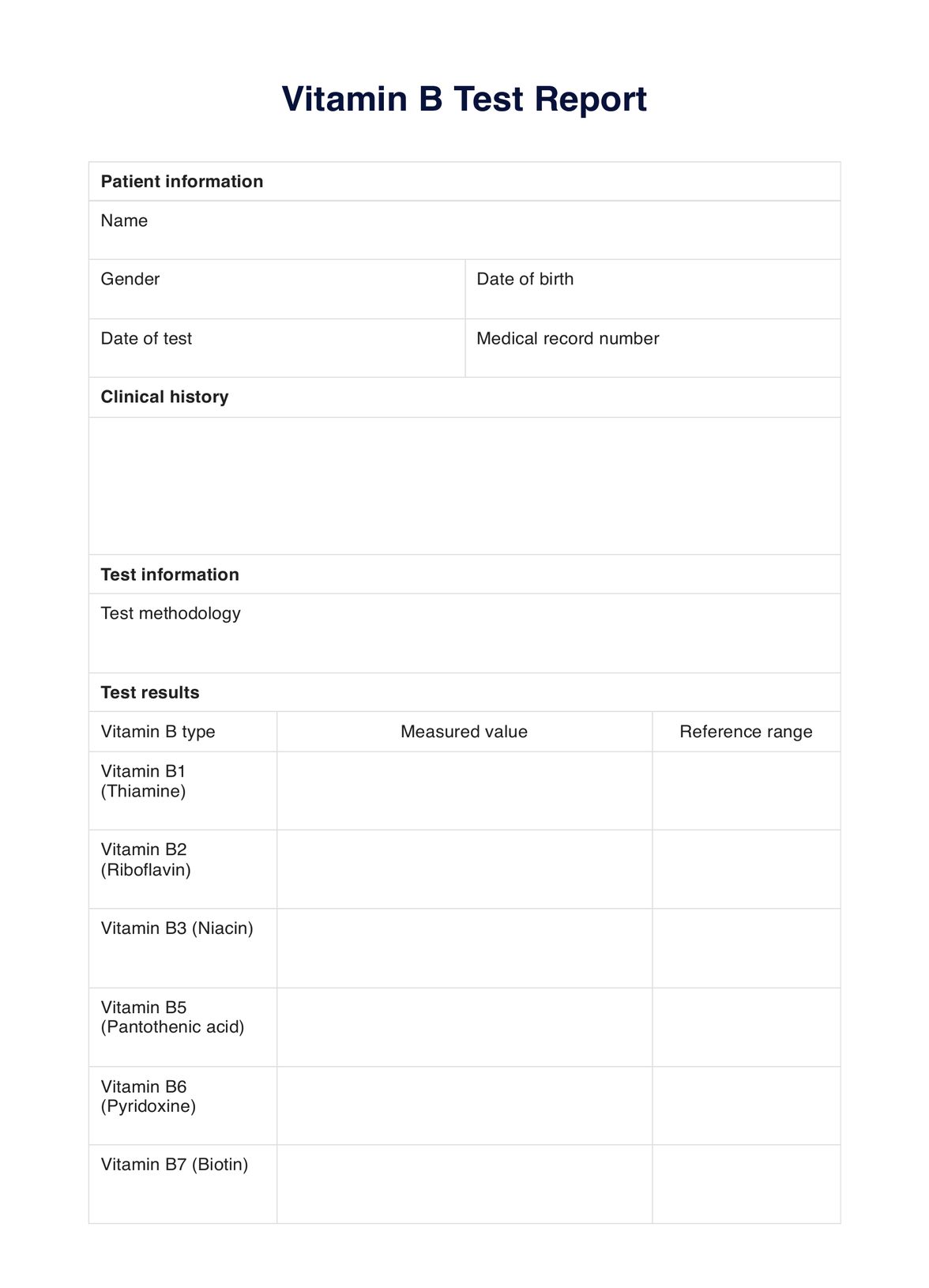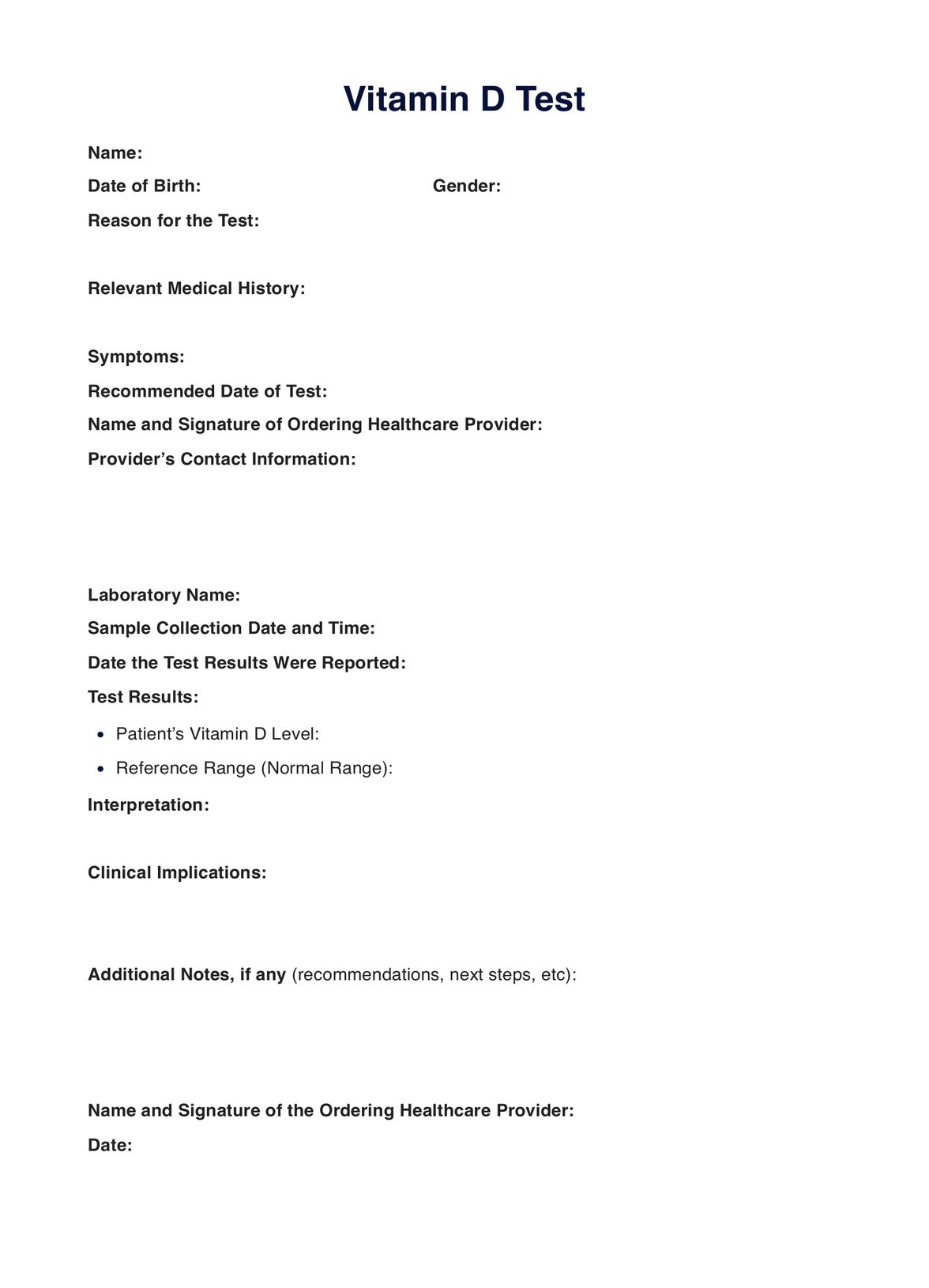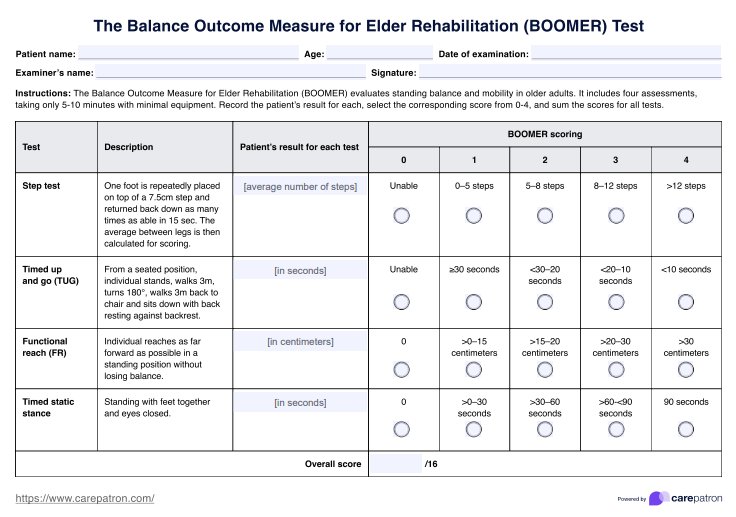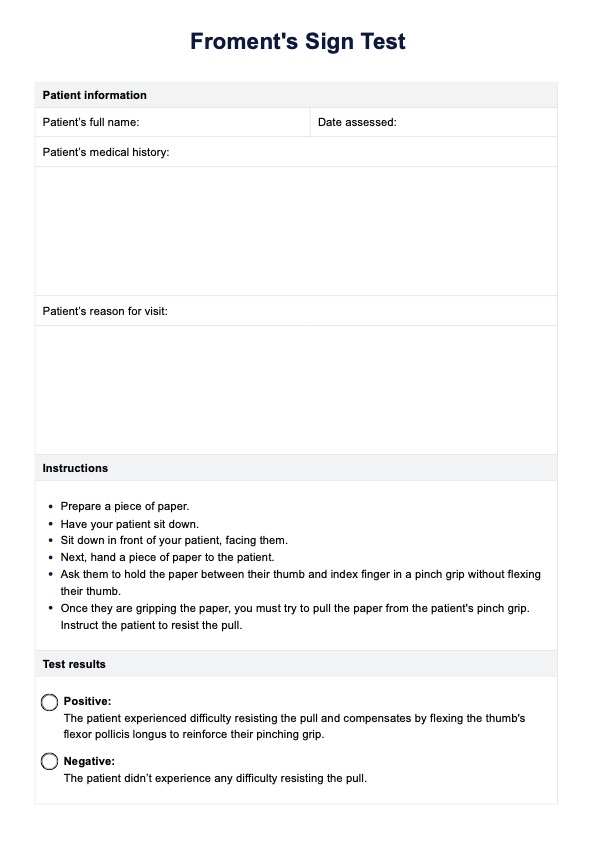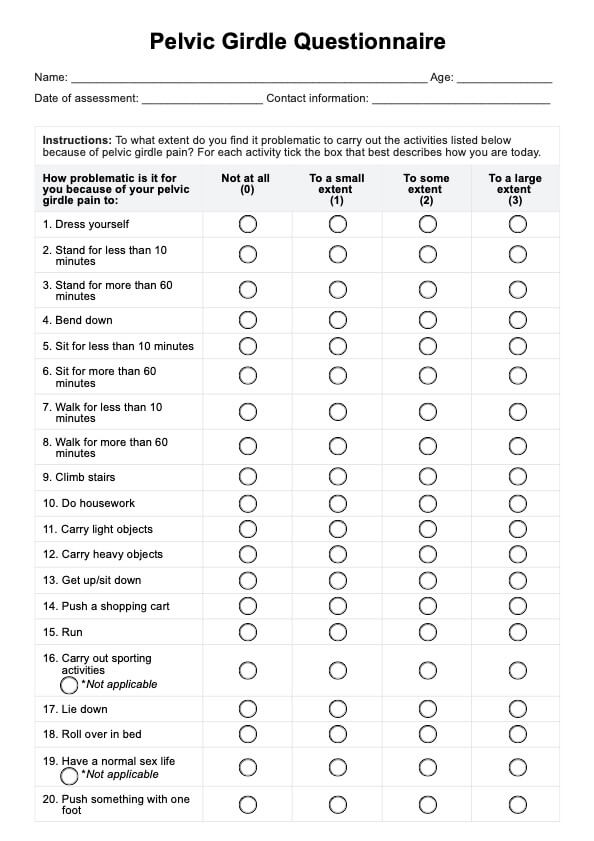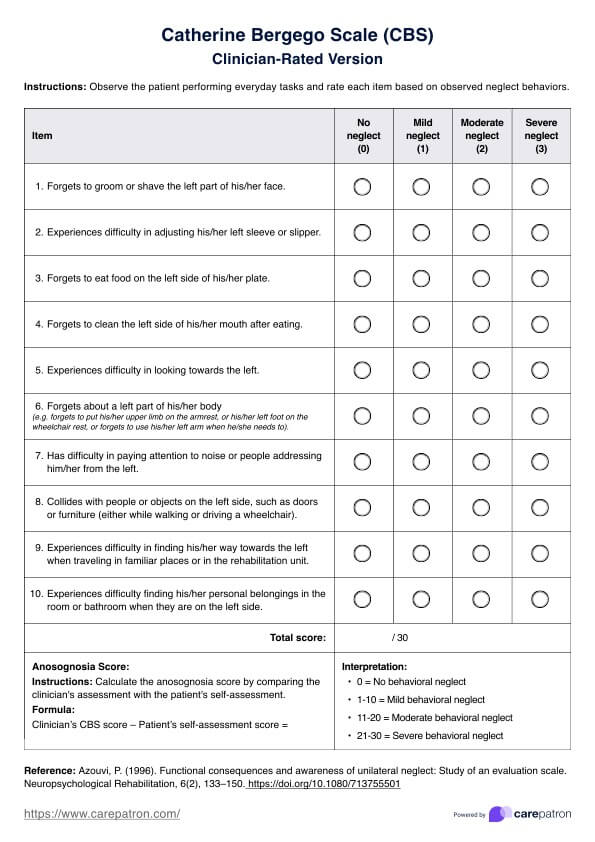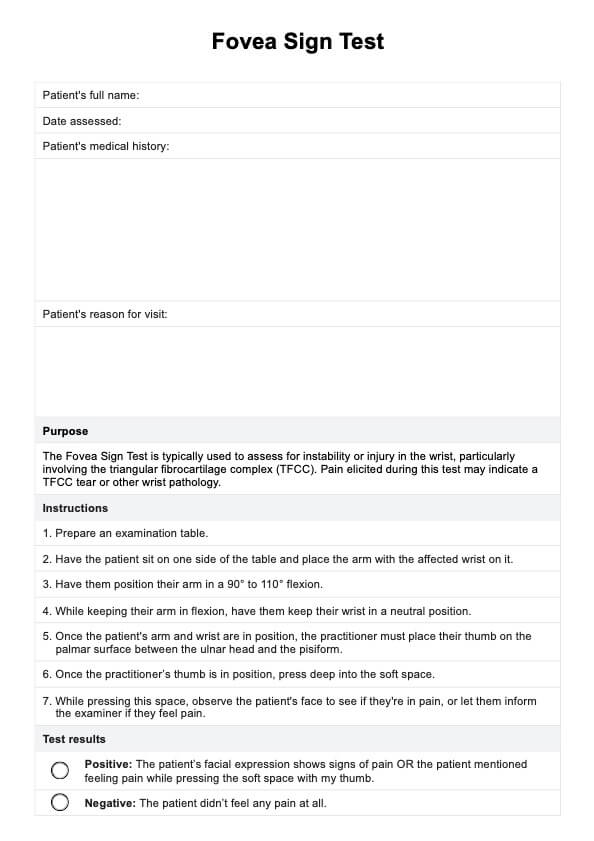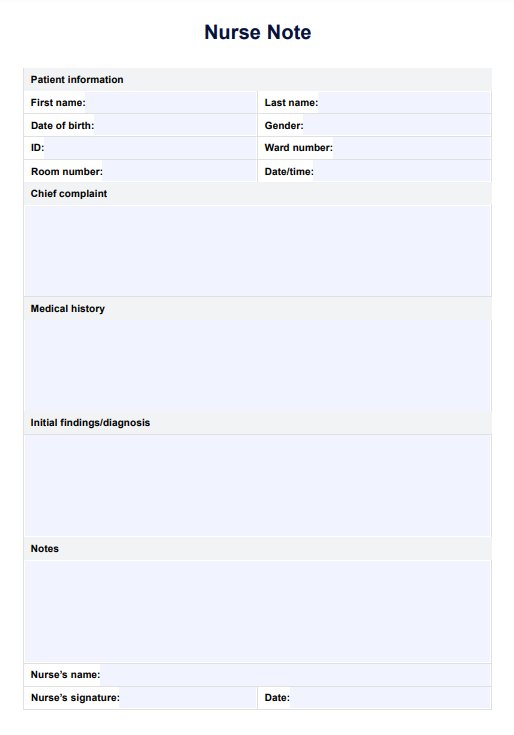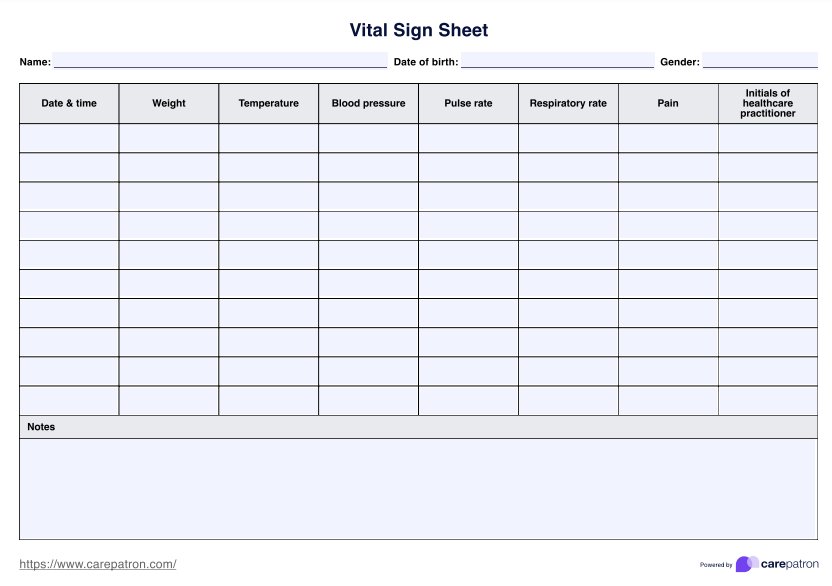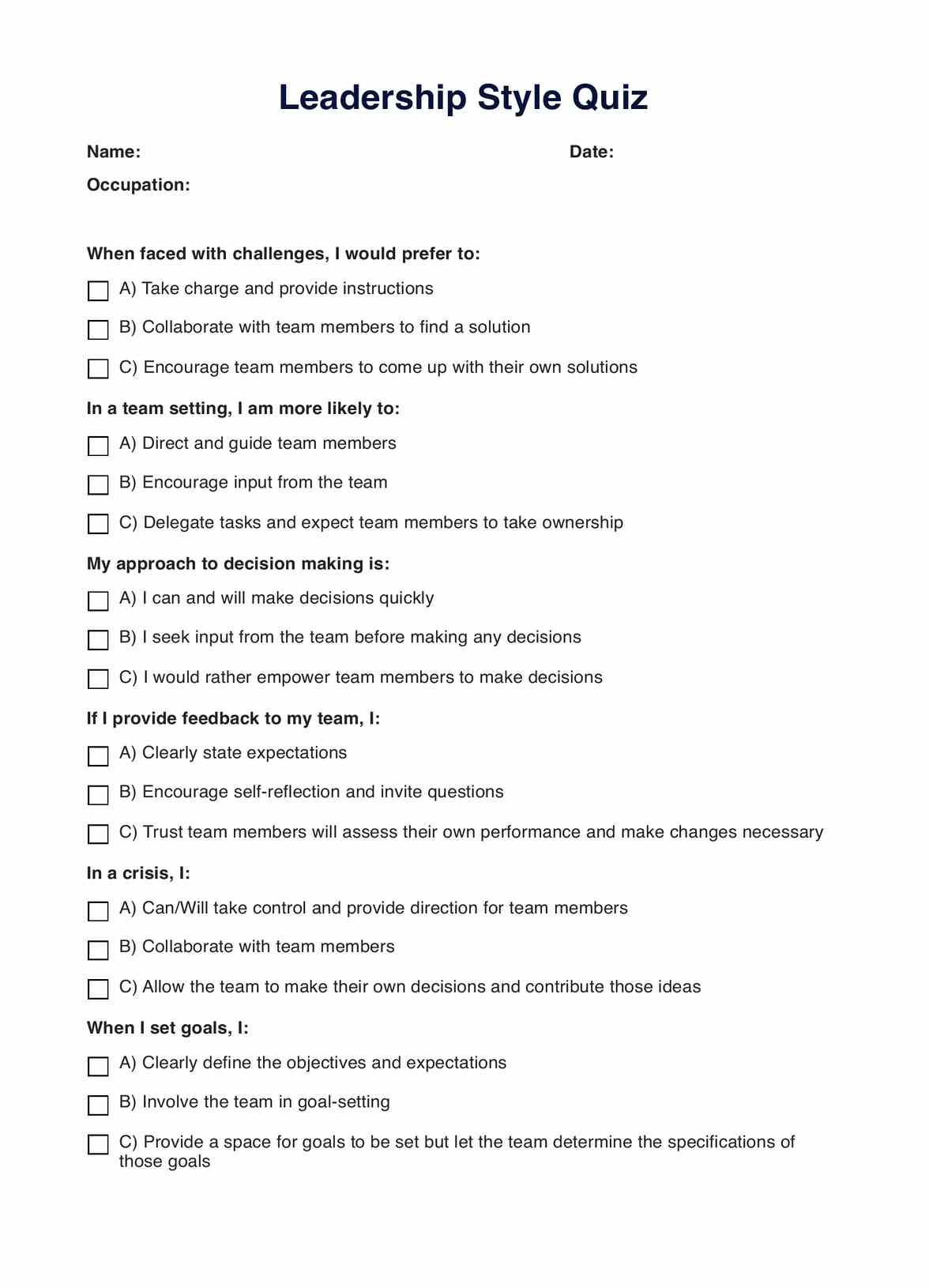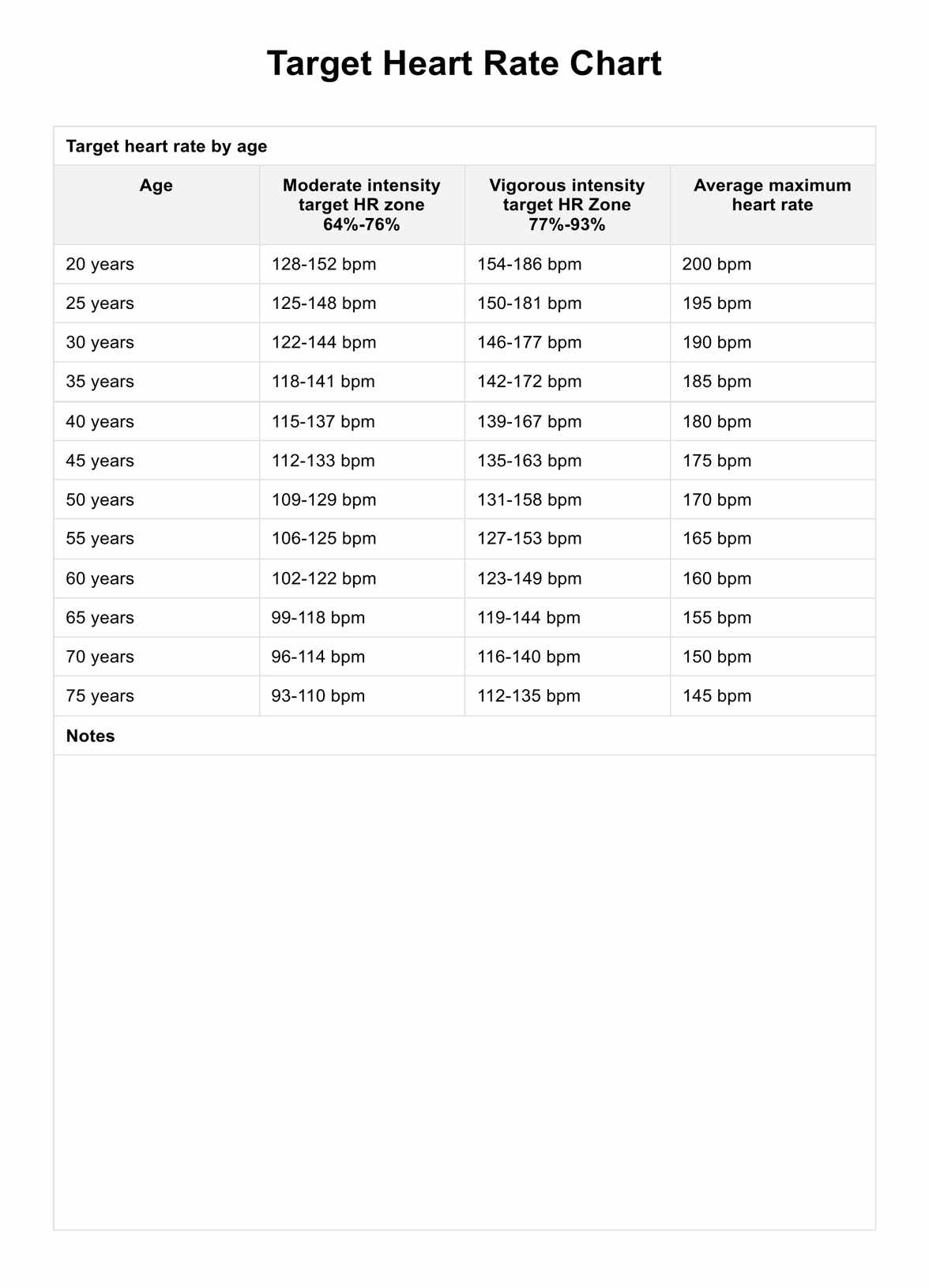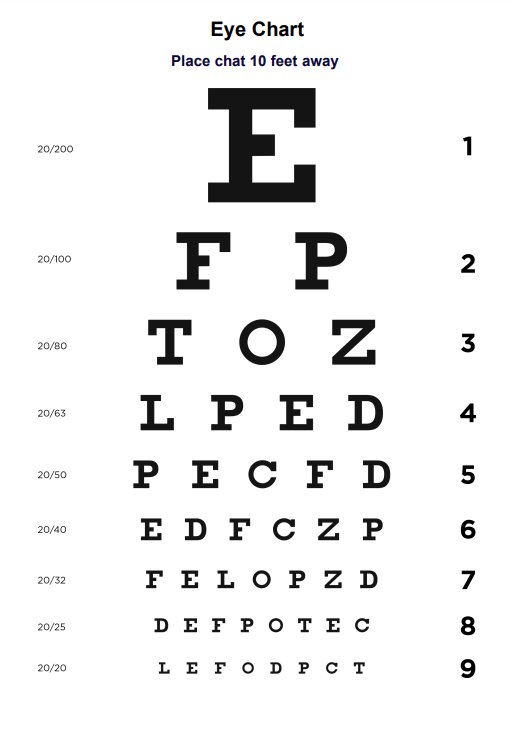Vitamin Chart
Discover the importance of vitamins for optimal health with our comprehensive Vitamin Chart. Learn about functions, sources, and dietary recommendations.


Understanding the importance of vitamins
Vitamins are organic compounds that our bodies need in small amounts to function properly. They play a crucial role in various bodily processes, from supporting immune function and promoting healthy skin to aiding wound healing and maintaining strong bones. Vitamins are classified into two main types: fat-soluble vitamins (vitamins A, D, E, and K) and water-soluble vitamins (like vitamin C and Vitamin B) (Harvard T.H. Chan School of Public Health, 2023).
The fat-soluble vitamins are stored in the body's fatty tissues and liver. In contrast, water-soluble vitamins are not stored and need to be replenished regularly through the diet. Each vitamin has its specific functions and benefits for the body. For instance, vitamin C boosts immune function and wound healing. In contrast, vitamin E is essential for healthy skin and cell function. Vitamin D helps the body absorb calcium and maintain healthy bones.
Consuming a balanced diet that includes a variety of nutrient-rich foods is essential to ensure adequate vitamin intake and prevent deficiencies. Good food sources of vitamins include citrus fruits, green vegetables, dairy products, lean meats, fish, nuts, whole grains, and seeds.
Taking vitamins becomes crucial for maintaining optimal health and addressing specific deficiencies in various scenarios. Understanding the importance of vitamins aids healthcare practitioners in recommending appropriate interventions.
- Supporting red blood cells: Vitamins such as vitamin B12 and folic acid are essential for producing red blood cells, which carry oxygen throughout the body.
- Promoting nerve function: Specific vitamins, including vitamin B12 and niacin, are vital in maintaining a healthy nervous system.
- Enhancing immune function: Vitamin C or ascorbic acid is known for immune-boosting properties. It may help strengthen the body's defenses during illness or increase infection susceptibility.
- Supporting eye health: Nutrients such as vitamin A (retinoids and beta carotene) are essential for maintaining vision and eye health. For individuals with poor dietary intake of green leafy vegetables, egg yolks, or orange juice, supplementation can help prevent vision problems.
- Maintaining heart health: Certain B vitamins, such as niacin, are crucial for cardiovascular health.
- Keeps skin healthy: Vitamins like vitamin E found in vegetable oils and vitamin C are essential for skin health, promoting healing and protecting against damage from free radicals.
Vitamin Chart Template
Vitamin Chart Example
What is a Vitamin Chart?
A Vitamin Chart visualizes essential vitamins, their functions, recommended dietary allowance, and food sources. It is a convenient reference guide for individuals seeking to ensure that they eat properly and meet their nutritional needs. This chart highlights vital vitamins such as vitamins C, D, and E, along with their respective roles in supporting overall health.
Moreover, a chart for vitamins typically includes information on recommended daily intake levels based on established guidelines such as dietary reference intakes and recommended mineral dietary allowances. These guidelines help individuals understand how much vitamin they should consume daily to maintain optimal health. In other charts, information on the tolerable upper intake level may be included.
Beyond simply listing vitamins and their functions, a Vitamin Chart provides insight into the diverse food sources rich in these nutrients. This allows individuals to make informed dietary choices and ensure they incorporate various nutrient-dense foods into their meals to meet their vitamin requirements.
How to use our Vitamin Chart?
Using a Vitamin can be a great way to ensure that your patients are getting the right nutrients for their health. Here are some steps to help you effectively use our Vitamin Chart.
Step 1: Understand the chart
After you obtain a vitamin chart PDF copy by clicking the "Download PDF" or "Use template" button, familiarize yourself with the layout and content of the chart. Our Vitamin Chart includes a list of vitamins along with their recommended daily intake, food sources, functions, and health benefits they can provide.
Step 2: Use the chart
During the appointment, give your patient a copy of the chart and go through the content. Encourage them to share about their diet to help identify any gaps in their diet. This information will help you recommend what to adjust in their diet to ensure they get an adequate intake of certain vitamins, whether that's through food, fortified foods, or supplements. If they decide to take supplements, do remind them to check the supplement labels or ask a healthcare provider such as yourself beforehand.
When is it best to use a Vitamin Chart?
A Vitamin Chart is best utilized in several scenarios where individuals or healthcare practitioners seek to optimize nutritional intake or address potential deficiencies effectively. Here are some situations where using a Vitamin Chart proves beneficial:
Personal nutrition planning
Healthcare providers can use a Vitamin Chart to assess their patient's daily dietary intake and ensure they meet recommended levels of essential vitamins. This is particularly helpful for those aiming to maintain a balanced diet or address specific health concerns.
Dietary counseling sessions
Healthcare professionals, such as dietitians or nutritionists, can use a Vitamin Chart during counseling sessions to educate clients about the importance of various vitamins and help them make informed dietary choices. It serves as a visual aid to illustrate the sources and functions of different vitamins.
Managing health conditions
Clinicians who are caring for patients with certain health conditions, such as anemia, osteoporosis, or immune disorders, may benefit from using a Vitamin Chart to identify food sources rich in specific vitamins that support their condition. This can complement medical treatment and promote overall well-being.
Pregnancy and prenatal care
Obstetricians and family doctors can use and give expectant mothers a Vitamin Chart to ensure they meet the increased nutritional requirements during pregnancy, including essential vitamins like folic acid and iron. They may also use it to educate pregnant women about the importance of prenatal vitamins.
Monitoring vitamin supplementation
Healthcare providers may also give a copy of the chart to individuals taking dietary supplements or prescribed vitamins. A Vitamin Chart can serve as a tool to track intake and ensure that individuals are not exceeding recommended levels or experiencing deficiencies.
Educating patients
Healthcare practitioners can use a Vitamin Chart to educate patients about the importance of vitamins in maintaining overall health and preventing chronic diseases. It helps empower patients to take an active role in managing their health through proper nutrition.
Reference
Harvard T.H. Chan School of Public Health. (2023, March). Vitamins and minerals. The Nutrition Source. https://nutritionsource.hsph.harvard.edu/vitamins/
Commonly asked questions
The Vitamin Chart provides essential information about vitamins and minerals, aiding individuals and healthcare professionals to understand nutritional requirements for optimal health.
Minerals and vitamins complement various bodily functions, ensuring a balanced intake supports overall health and wellness.
Yes, by comparing with recommended daily intakes, the Vitamin Chart can help individuals identify potential deficiencies or excesses, guiding adjustments to maintain optimal health.


